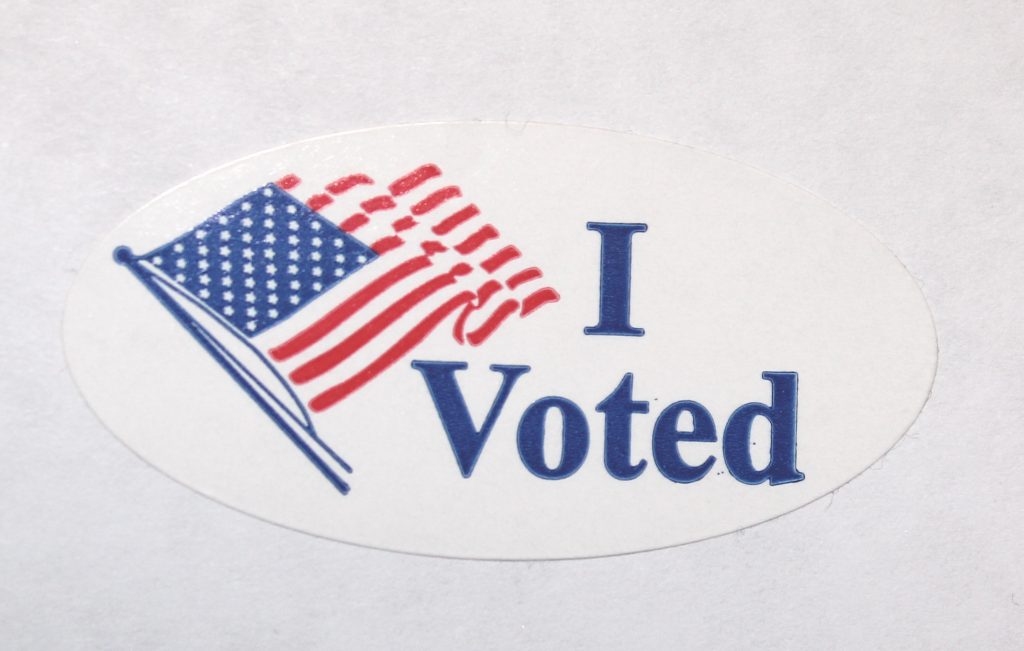In future Northampton municipal elections anyone 16 years or older might be able to cast a vote for their top candidate and also rank their second or third choices, too.
At its May 21 meeting, the city’s Charter Review Commission voted in favor of moving forward four proposed initiatives related to voting — ranked-choice voting, lowering the voting age to 16, mailing ballots to all registered voters, and removing the need to cite a specific reason to obtain an absentee ballot.
Charter Review Commission Chair Stanley Moulton told the Valley Advocate that the four voting initiatives would be part of a broader collection of proposed changes to Northampton’s city charter, which would be submitted by Dec. 31 to the City Council and Mayor David Narkewicz. If approved by those parties, these initiatives would then require approval from the state Legislature. Voting options such as ranked-choice voting and lowering the municipal voting age to 16 would also require a city-wide referendum vote during an election.
“These will apply only to municipal elections, not to state and national elections,” Moulton explained. “They’re all aiming to better engage voters in the process by increasing voter turnout, we hope, by giving an opportunity to better allocate choices by voters in a way that reflects their sentiments better.”
The commission voted to recommend all four voting initiatives with no dissenting votes, Moulton said. Eight of the nine members of the commission were present during the May 21 meeting.
As for lowering the voting age to 16, this issue has been a topic that the Northampton Mayor’s Youth Commission has been advocating for with members speaking out in favor of the proposal at recent commission meetings.
Margot Schocket-Greene, 17, who is co-chair of the Youth Commission and a senior at Northampton High School, said she thinks lowering the voting age would help solve problems related to voter apathy.
“The youth in Northampton have really gotten behind it because we are all really passionate and active in matters such as The March for Our Lives, in which there was a really big turnout during the campaign and march for gun control reform,” she said. “Students have been really advocating for themselves. This is a way in which we can really be heard and choose who represents us on a municipal level.”
Schocket-Greene said members of the youth commission hope they can be a part of changing the voting age statewide as well.
Moulton said he believes Northampton has a chance to be a leader among Massachusetts communities in regards to these voting initiatives.
“I think [these voting measures] are the furthest that any community in Massachusetts has gone, to my knowledge, to make very progressive changes that we hope will better engage voters,” he said.
Other nearby communities are exploring some of these initiatives such as ranked-choice voting as well. Easthampton is considering ranked-choice voting with a planned vote on the issue in November, Moulton said. Amherst is also exploring ranked choice voting through the town’s Ranked-Choice Voting Commission.
Amherst is also considering a cap on donations for municipal elections. Amherst District 4 Councilor Evan Ross and At-Large Councilor Mandi Jo Hanneke have proposed a $250 limit of campaign contributions by individuals to a candidate and a $125 cap from political action committees to a candidate, according to the proposed bylaw.
If a person or committee does not purge excess donated funds by 15 days they could incur a fine up to $250.
At the state level, there have been several different bills which have been introduced during the current legislative cycle related to ranked-choice voting and early voting. Bills for ranked-choice voting include Bills H.719, S.420, and H.635, which all similarly propose ranked-choice voting in Massachusetts.
Others, such as S.382 and H.684, call for early voting in municipal elections and early voting in the Massachusetts 2020 Presidential Primary, respectively.
Chris Goudreau can be reached at cgoudreau@valleyadvocate.com.



